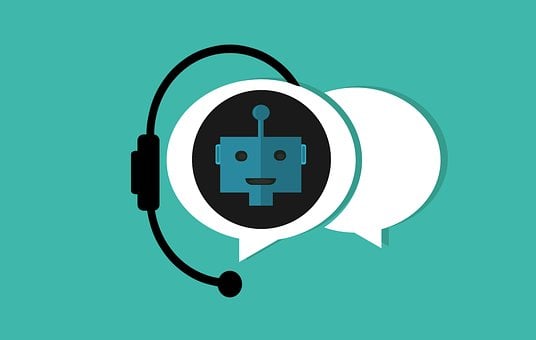May 27
2020
How Chatbots Are Relieving Pressure On Healthcare Systems and Saving Lives During COVID-19

Chatbots have come of age. And they’ve come a long way from the clumsy pop-ups once deployed on websites to generate leads. Thanks to Artificial Intelligence, the latest generation of chatbots are more clever than ever and are increasingly playing a role in the global fight against COVID-19.
Chatbots on the Front Lines
You might not expect to find chatbots on the front lines of a public-health crisis, but multiple hospitals and health organizations have recognized their value at a time when all human hands are on deck. Take Hyro’s COVID-19 Virtual Assistant, for example, this free AI-powered, corona-focused chatbot answers questions, parses responses, poses follow-up queries of its own, triages symptoms and addresses patients’ concerns while sharing important information from the CDC and WHO.
The Hyro COVID-19 Virtual Assistant can be embedded on websites, call centers, and apps, allowing patients to freely interact with it via voice and text using their own natural language. In essence, this data-driven virtual assistant assumes the role of a human point of contact, relieving strain at a time when health organizations are increasingly overloaded. Hyro, a member of Microsoft’s Partner Network, has been entrusted by a number of healthcare facilities including New York’s Montefiore Hospital, the Austin Regional Clinic, and Ohio’s Fisher-Titus Medical Center. The tech startup has made the plug-and-play chatbot completely free for the purposes of combatting the outbreak.
How Chatbots Are Sparking Conversation
This isn’t the only example of a chatbot being integrated into the typical patient journey: developers such as Txtonomy and Orbita and have created similar conversational AI tools to help combat the rampant spread of misinformation related to Covid-19 and support medical professionals in screening patients and educating worried citizens. The UK government introduced a special WhatsApp chatbot for the same reasons. Could this be an insight into the future of healthcare: clinical smart-bots handling preliminary inquiries, screening and funnelling patients accordingly, introducing efficiencies in testing and treatment?
The popularity of services like Amazon Alexa and Google Assistant indicate that many people are more than comfortable with receiving voice-guided directives. As long as the content collated and programmed into medical chatbots is scientifically sound, and vetted by board-certified specialists, chatbots could streamline the operations of doctors’ offices and hospitals throughout the world.
Conversational AI Could Help Us Open Up
Health-focused chatbots have been around for a few years now: some are geared towards informing diabetic patients about their medical routines and appointment dates, while others provide support for individuals suffering from mental health issues.
Although there is no substitute for human interaction – a friendly voice, a willing listener – these tools have major advantages, particularly when it comes to ensuring the anonymity of patients. Chatbots can also listen and converse at any time of the day or night, suggesting activities that might take the user’s mind off whatever ailment they are suffering from.
One such tool, Woebot, was built by a team of Stanford psychologists to monitor the mood of users and alleviate anxiety and depression. Through a combination of natural language processing, psychological expertise and sense of humor, Woebot – which describes itself as “Philosopher, Life Coach and friend” – acts as a virtual therapist while establishing a human-like connection. Available on iOS and Android, Woebot was the subject of a peer-reviewed study in young adults suffering from depression and anxiety, and was found to cause significant reductions in symptoms compared to an information-only control group.
Another tool has been pioneered to help reduce no-shows for colonoscopies, endoscopic examinations used to screen for colon cancer. Northwell Health’s personalized chatbot interacts via text and email, addressing misunderstandings, highlighting the benefits of testing and assuaging concerns in a conversational manner. As well as providing valuable information, the chatbot – which is available in English and Spanish – eliminates any embarrassment a patient may feel about the vital procedure. Studies show that four in ten patients recommended for colonoscopies fail to show up for the procedure.
The healthcare industry is embracing innovation to support staff and improve patient outcomes, and AI-powered chatbots represent a fascinating area of study. Whether as a workflow digital assistant (appointment scheduling, clinical referrals based on geo-location, etc), a friendly therapist who can always lend an ear, or an intuitive informational database that handles enquiries and combats fake news, such tools have a key role to play. The once-maligned chatbot is here to stay.